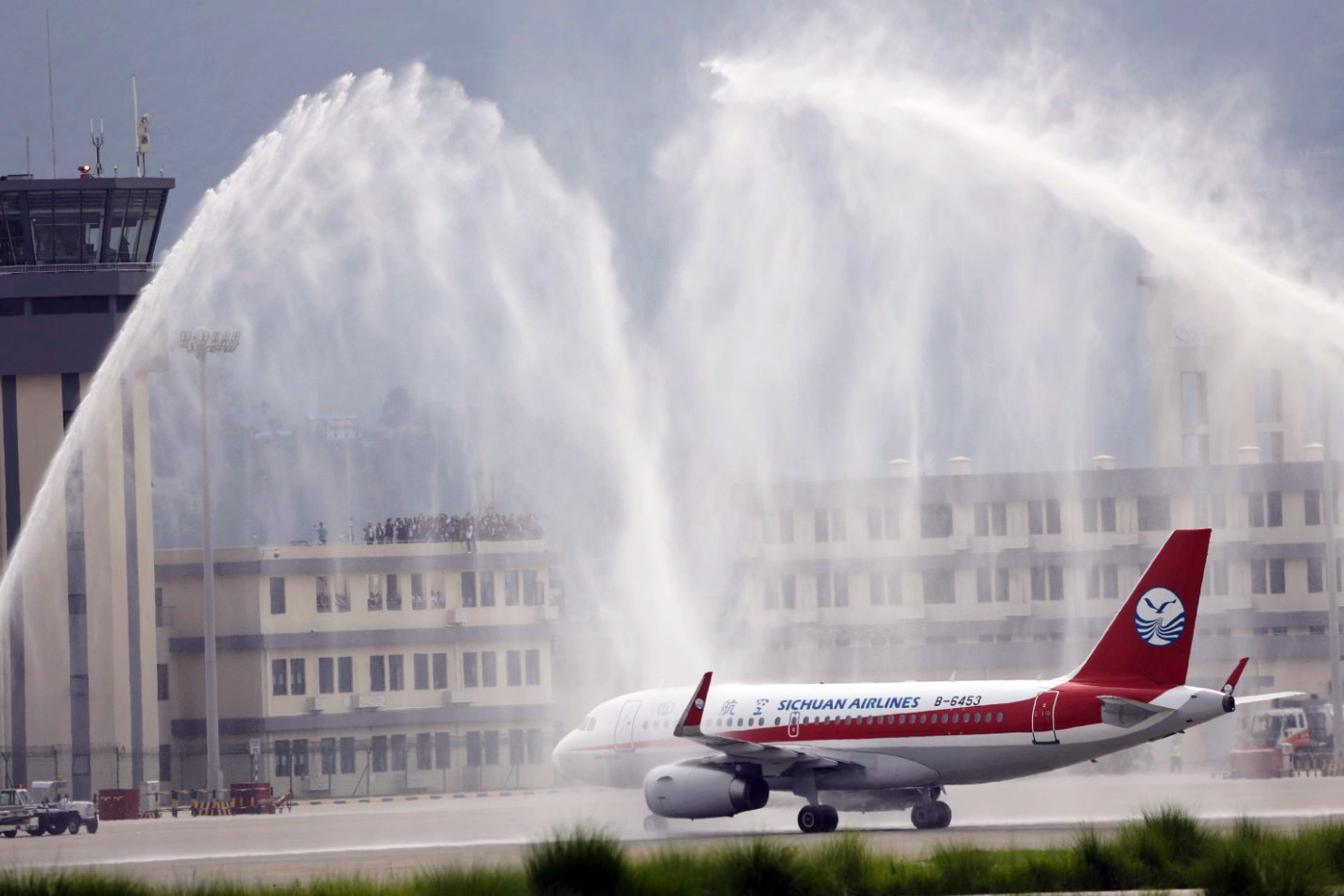Once again, China has claimed that Pokhara International Airport (PIA) is a project under its Belt and Road Initiative (BRI), raising eyebrows in Kathmandu. Despite Nepali leaders’ repeated assertion that this is not a BRI project, China continues to put it under the BRI which is likely to cause diplomatic friction between the two countries. However, the Ministry of Foreign Affairs remains mum about China’s latest claim. The ministry has not sent any diplomatic notes to China, seeking a clarification.
Under the BRI, Nepal has proposed nine projects but there has not been any progress on it. At the same time, the BRI implementation plan is yet to be finalized. In this scenario, experts say, it is not appropriate to list all projects built under Chinese loan or grant under the BRI framework. China’s claim clearly shows its desperation to push the BRI project in Nepal, says Vijay Kant Karna, foreign policy expert.
Amid a program held after the first international plane landing at the PIA on Wednesday, Chinese Ambassador to Nepal Chen Song claimed that the airport is under the BRI project. He said that the airport was designed and built by a Chinese company which was made under the BRI project. While Nepal signed the BRI project in 2017, the contract for the airport project was signed in 2014. Luo Yan, chairman of the China CAMC Engineering Co Ltd, and Ratish Chandra Lal Suman, then director general of Civil Aviation Authority of Nepal, had signed the contract worth $215.96m.
On 21 March 2016, China Exim Bank and the Government of Nepal signed a government concessional loan (GCL) agreement worth RMB 1.37bn for the Pokhara International Regional Airport Construction Project. Twenty-five percent of the loan value (RMB 355.9m) was provided without interest and with a maturity period of 20 years and a grace period of seven years. The remaining 75 percent of the loan value (RMB 1.02bn) was provided at a two percent interest rate, 20-year maturity period and a seven-year grace period.
While inaugurating the airport on 1 Jan 2023 too, the Chinese embassy had claimed it as a part of the BRI project. Karna says that this is a result of poor diplomacy of Nepal. “China is facing a dilemma because it couldn’t manage the BRI projects in Nepal,” he says. “China has now started claiming random projects as BRI out of desperation.” After four attempts to contact Foreign Ministry spokesperson Sewa Lamsal for comments failed, ApEx called up assistant spokesperson, Paras Pandit, who suggested contacting spokesperson Lamsal once again. The fifth call yielded no different result.












